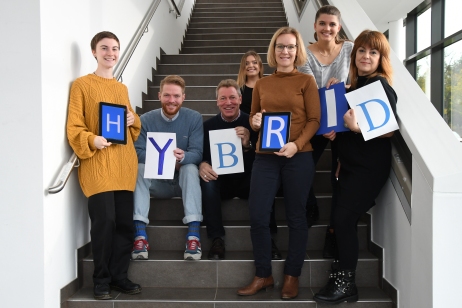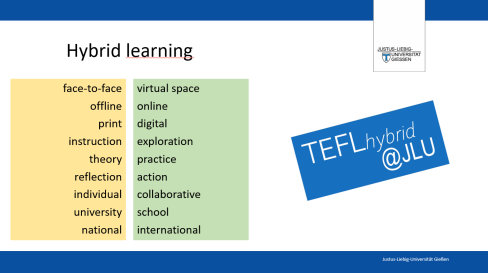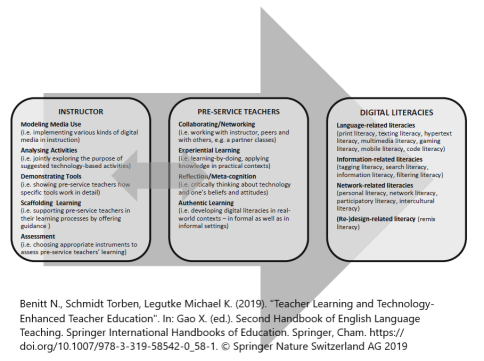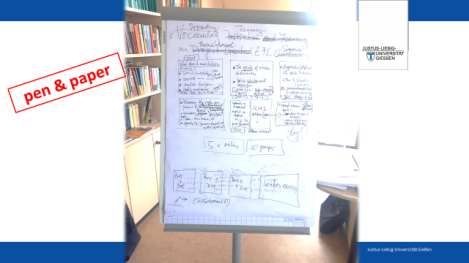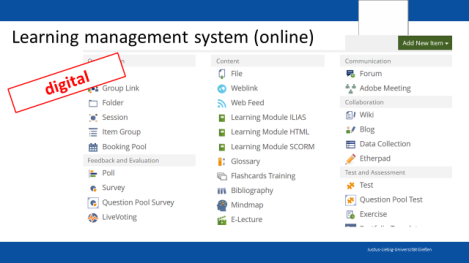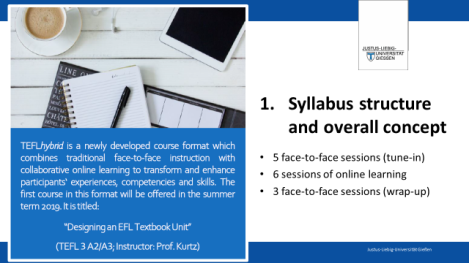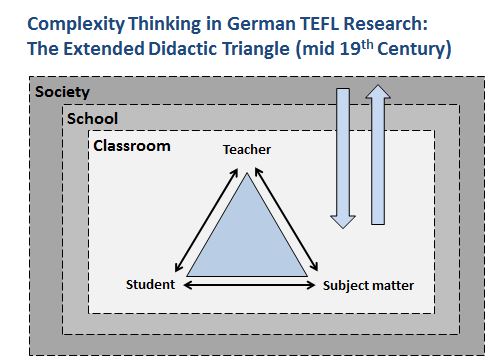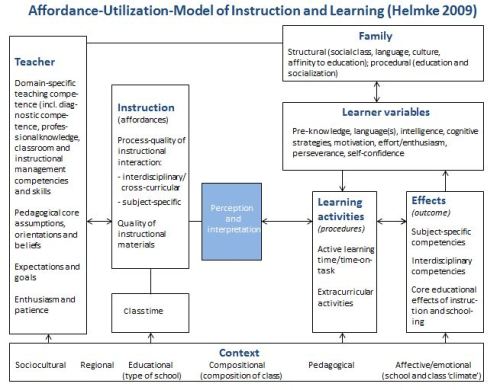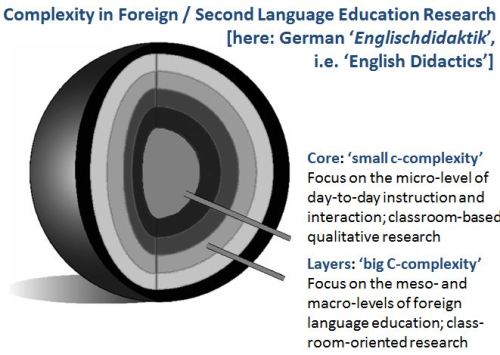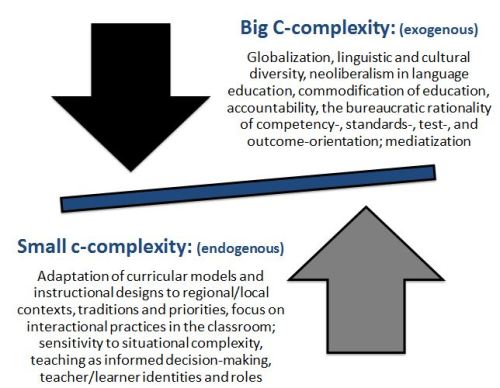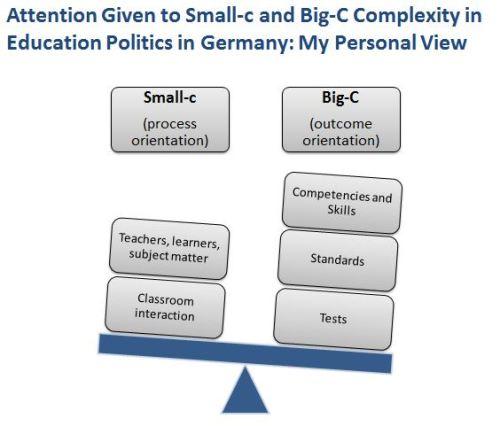posted by Jürgen Kurtz, Justus Liebig University (JLU) Giessen, Germany
Life skills-based education: a (very) brief outline
In its landmark report to UNESCO on the role of education in the future, the International Commission on Education for the Twenty-first Century (Delors et al.1996) underlined the growing importance of learning throughout life and the need to focus on four pillars of education, in particular: learning to know, learning to do, learning to live together, and learning to be – ‘learning to be’ including ‘learning to learn’. In accordance with this vision, the United Nations Educational Framework for Action (UNESCO 2000: 36) obliged governments to ensure “that the learning needs of all young people and adults are met through equitable access to appropriate learning and life skills programmes” within the first decade of the twenty-first century.
However, even though the main goals of life skills-based education are largely agreed upon world-wide (i.e. enabling young people to lead a fulfilling and healthful life and to take control of their destiny, as well as empowering them to fully, responsibly and creatively participate in their societies, which increasingly entails being familiar with and tolerant of other societies and cultures), a generally accepted definition as to what exactly is meant by ‘life skills’ is still missing. In view of the diverse and continuously changing cultural contexts in which children and adolescents are growing up today and the changing demands of life they need to be able to cope with, this is completely understandable. In her background paper for the UNESCO Education for All Global Monitoring Report 2003/4, Singh drew the following important conclusion: “It is not enough to ask how life skills are defined in general; rather it is essential to ask how they exist in diverse life situations and how they affect the empowerment of people.” (UIE 2003a: 2). This needs to be kept in mind when taking life-skills based education into the foreign language classroom.
Nevertheless, in order to capture the essence of what life skills-based education is and to outline the scope of it roughly, two general, largely complementary definitions are particularly interesting in this context. According to UNICEF (2007), life skills-based education refers to a number of psycho-social and interpersonal skills which can help people make informed decisions, communicate effectively, and develop coping and self-management skills. The overall focus is on empowering young people to deal with challenging life situations and critical incidents successfully and, ultimately, to lead healthy and productive lives. As such, life skills-based education is associated with relevant and engaging learning content as well as with contextualized interactive and participatory learning and teaching aimed at enabling all learners to acquire knowledge and to develop skills and attitudes which allow them to cope with a wide range of intrapersonal and interpersonal conflicts and challenges.
Likewise, the World Health Organization (WHO 1999) points out: “Life skills education is designed to facilitate the practice and reinforcement of psychosocial skills in a culturally and developmentally appropriate way; it contributes to the promotion of personal and social development, the prevention of health and social problems, and the protection of human rights.” More concretely, the following life skills are considered to be the most essential: the capacity to think creatively and critically, the ability to make decisions and to solve problems, the ability to communicate effectively, the ability to establish and maintain interpersonal relations, knowledge of self and others, the capacity to feel empathy, and the ability to handle emotions, including the ability to handle tension and stress (see PAHO 2000; 2001: 29-32).
Taking both of these definitions together, life-skills based education calls attention to a continuum of intrapersonal and interpersonal aspects of coping with life in the global media, information and knowledge society, seeking to develop an action-oriented competence in relevant life contexts in an integrated way. As Singh points out, the overall approach implies success in private as well as in professional life, which means that “the idea of success is not only the accomplishment of a happy working life, but also the creation of a self-fulfilling life outside the world of work and wealth creation.” (UIE 2003a: 4).
In sum, the international discussion of life-skills based education with its focus on human independence and interdependence, on knowledge, skills and understanding, as well as on beliefs, attitudes and values clearly indicates that current standards-driven reforms of foreign language education, in their unfortunate combination of simplistic and bureaucratic views of accountability and accountability assessment, and their tendency to exclude long-term sustainable aspects of education and educational assessment, have to be reconsidered. It is time to counteract the continuing withdrawal from general educational objectives and human needs in foreign language classrooms, without of course losing sight of the essence of foreign language teaching, i.e. of ensuring that learners achieve a good command of the target language.
Taking life skills based-education into the EFL classroom
The Common European Framework of Reference for Languages (CEFR) (Council of Europe 2001) is based on a holistic concept of foreign language learning which is slightly but decisively different from that underlying life skills-based education. ‘Existential competence’, to begin with, is considered to be the “sum of individual characteristics, personality traits and attitudes which concern, for example, self-image and one’s view of others and willingness to engage with other people in social interaction” (2001: 11-12). Furthermore, personal identity is described in terms of “selfhood factors” referring to attitudes, motivations, values, beliefs, cognitive styles, etc. (2001: 105-106). However, by explicitly stating that existential competence and personal identity are thought of as the sum of various parts, the CEFR has, probably unintentionally, opened up a Pandora’s box of theoretical and practical problems and contributed to the growing obsession with assessment and accountability which we are witnessing in educational politics in many countries today. One fundamental insight of Gestalt theory should have been given more careful attention in this context: the whole is not simply the sum of its parts, and not just more than the sum of its parts, but significantly different in quality from the sum of its parts (see Wertheimer 1922, 1923). In all probability, the educational whole in terms of existential competence and personal identity which is meant here will be almost impossible to measure and fully account for in standardized tests. But this does not automatically mean that is it less precious and important for life in the twenty-first century – on the contrary.
In order to meet the growing challenges and demands of childhood and youth in foreign language instruction, the selfhood factors referred to in the CEFR, which are thought of as being mutable through learning need to be seen as far more than just “parameters which have to be taken into account in foreign language learning and teaching” (2001: 11-12). Since these factors or parameters are of utmost importance in improving individual chances in life, pushing forward social change and bringing about more integrated and participatory societies (see UIE 2003b: 7), foreign language learning in secondary schools should more directly address the educational questions and challenges that arise out of these, and, consequently, provide appropriate content- and context-based learning environments.
From this perspective, shaping what is taught in foreign language classrooms in terms of thematic content and outlining some of the key issues for communication is as important as the promotion of “methods of modern language teaching which will strengthen independence of thought, judgement and action, combined with social skills and responsibility” (Council of Europe 2001: 4). It needs to be remembered that foreign language learners will hardly engage in message-oriented and ‘form-sensitive’ classroom activities geared at mobilizing and improving their target language as well as their personal (intellectual, emotional and social) skills and abilities, as long as the thematic contents offered and the situational contexts created are felt to be uninteresting or irrelevant to them. Foreign language instruction based on thematic content which is unrealistically and artificially ‘designed away’ from everyday problems of growing up today contributes too little to helping learners become “thinking social actors” (Breen 1985: 144), even if learning is embedded in experience-, task- and activity-based communicative classroom environments. It rather leads to what Legutke & Thomas (1999) have appositely referred to as ‘dead bodies and talking heads’ in the foreign language classroom, with the learners more or less simply working out how to say correctly what they are told or expected to say by the teacher (see also Thompson 1996).
As has already been indicated above, four fundamental, highly interrelated thematic areas are currently of particular interest and importance to education in secondary schools from a life skills-based educational perspective – not only in Germany: health, ecology, citizenship and peace. However, since these thematic categories are far too abstract and too distant from the learners’ personal experiences to deal with them in the foreign language classroom as such, they need to be broken down to more specific thematic and contextual units which are flexible enough to spontaneously address concrete problems of life and respond to critical incidents as they come up almost naturally day by day. Distinguishing between macro-, meso- and micro-thematic content level considerations is one way of approaching this problem in theory, but in any case, more empirical research will be required to ferret out and understand contemporary learners’ needs in more detail in the coming years. Only on the basis of this will it ultimately be possible to make foreign language learning in secondary schools more authentic and meaningful – in particular with regard to the purposes for which the learners are expected to acquire the target language, the anticipated communicative settings in which the target language will probably be used by them, the intercultural events in which they will be required and willing to participate, the content topics they will be exchanging views about, the language functions involved in these events, the grammatical structures and lexical material that will be needed, etc.
Focussing on foreign language learning and teaching as an educational enterprise, i.e. as a cognitively, affectively and socially challenging long-term process of intercultural initiation, some suggestions for infusing life skills-based education into secondary school foreign language classrooms are given below:
Macro-level (concerning goal-setting and the selection of thematic content):
• Bring together the key elements of life skills-based education, of global education (see Cates 2002) and of intercultural education (see Byram 1997; Byram & Fleming 1998; Alred, Byram & Fleming 2002, 2006) with current approaches to content-based instruction (see Met 2002; Stoller 2004) and communicative language teaching in foreign language classrooms (see Richards 2005), including, but not overestimating the potential of task-based instruction in institutionalized secondary school settings.
• Step up systematic, empirically grounded foreign language and intercultural communicative needs analysis (see Long 2005) to identify thematic learning content and communicative substance which is of relevance to growing up and living in the twenty-first century.
• In order to avoid oversimplification and trivialization and to make foreign language education more learner-centred, authentic, and motivating, place more emphasis on the (cross-culturally pervasive) tensions, contradictions and pressures children and youth are confronted with in their daily lives (e.g. the surface-Westernization of juvenile lifestyles in terms of fashion, music, behavioural patterns, etc.).
Meso-level (concerning curriculum development and design):
• Integrate real-life thematic content into existing foreign language curricula; be aware of the possible mismatch between views of what is existentially important as seen by those who are growing up and as seen by researchers, curriculum advisors, coursebook designers and teachers.
• More specifically, try to identify thematic content areas and topics which can trigger lively classroom interaction in the target language, and can help to increase the learners’ willingness to communicate in the classroom and beyond.
• To facilitate better cross-curricular education, look for complementarity and interface between schools subjects.
• Example: ‘youth at risk’ (as a macro-level curriculum unit); meso-level topics: (a) ‘drug prevention’ (e.g. consuming premixed alcoholic beverages and/or over-the-counter drugs; smoking habits), (b) ‘healthy nutrition’ (e.g. food and eating habits inside and outside school; school meals; fast food), (c) ‘sexuality and sexual health’ (e.g. the emotional dimension of sex for men and women; Internet pornography; sexism; HIV/AIDS prevention), (d) ‘social and civic responsibility’ (e.g. vandalism and violence inside and outside schools; political or religious extremism or fundamentalism; racial discrimination), (e) ‘consumer behaviour and use of mass media’ (e.g. telemarketing; online shopping; phone-in television; mobile phone addiction and juvenile debt), (f) ‘sustainability’ (e.g. energy efficiency inside and outside schools; reduction of waste; recycling), etc. Central objectives: enhance target language communicative ability, explore/modify attitudes and values, increase knowledge, raise intercultural awareness, develop core skills towards effective use of knowledge in intra- and intercultural encounters (especially: critical thinking skills, negotiation skills, empathy skills, advocacy skills, refusal skills, decision-making skills, self-monitoring skills, counselling skills, skills for managing stress).
Micro-level (concerning learning environments and classroom practices):
• Upscale language and content integrated learning in regular foreign language classrooms by providing appropriate learning materials, by creating relevant and stimulating contexts and scenarios, by encouraging learners to share their everyday life experiences and to speak about critical life incidents, etc.
• Create experience-based, decision-oriented classroom environments in which learners can exchange ideas and views with children and youth from other cultures (e.g. in virtual communities in which learners collaborate trans-culturally and discuss their own values and attitudes towards concrete issues).
References
Alred, Geof; Byram, Michael & Fleming, Michael (Eds.) (2002), Intercultural Experience and Education. Clevedon: Multilingual Matters.
Alred, Geof; Byram, Michael and Fleming, Micheal (Eds.) (2006), Education for Intercultural Citizenship. Concepts and Comparisons. Clevedon: Multilingual Matters.
Breen, Michael P. (1985), “The social context for language learning – a neglected situation?” Studies in Second Language Acquisition, 7 (2), 135-158.
Byram, Michael & Fleming, Michael (Eds.) (1998), Language Learning in Intercultural Perspective. Approaches through Drama and Ethnography. Cambridge: Cambridge University Press.
Cates, Kip (2002), “Global Education.” In: Byram, Michael (Ed.) (2002), The Routledge Encyclopledia of Language Learning and Teaching. Routledge, 241-243.
Council of Europe (2001), Common European Framework of Reference for Languages: Learning, Teaching, Assessment. Cambridge: Cambridge University Press.
Delors, Jacques et al. (1996), Learning: The Treasure Within. Report to UNESCO of the International Commission on Education for the Twenty-First Century. Paris: UNESCO Publishing.
Legutke, Michael & Thomas, Howard (1999), Process and Experience in the Language Classroom. London: Longman.
Long, Michael (Ed.) (2005), Second Language Needs Analysis. Cambridge: Cambridge University Press.
Met, Myriam (2002), “Content-based instruction.” In: Carter, Ronald & Nunan, David (Eds.), The Cambridge Guide to Teaching English to Speakers of Other Language, 137-140.
PAHO (2000), Tobacco-free Youth: A ‘Life Skills’ Primer. Washington: Pan American Health Organization (PAHO Scientific and Technical Publications No. 579).
PAHO (2001), Life Skills Approach to Child and Adolescent Healthy Human Development. Available here.
Stoller, Fredericka L. (2004), “Content-based instruction: perspectives on curriculum planning.” Annual Review of Applied Linguistics 24, 261-283.
Thompson, Geoff (1996), “Some misconceptions about communicative language teaching.” English Language Teaching Journal, 50 (1), 9-15.
UNESCO (2000), World Education Forum. Final Report. Available here.
UIE (UNESCO Institute for Education) (2003a), “Understanding life skills.” Background paper for the EFA Global Monitoring Report 2003/4: Gender and Education for All, the Leap to Equality; prepared by Madhu Singh. Available here.
UIE (UNESCO Institute for Education) (2003b), Nurturing the Treasure. Vision and Strategy 2002-2007. Available here.
UNICEF (2007), Life Skills. Online. please click here.
WHO (1999), Partners in Life Skills Education. Conclusions from a United Nations inter-agency meeting. Geneva: Department of Mental Health. Available here.
Wertheimer, Max (1922), „Untersuchungen zur Lehre von der Gestalt. Reihe I.“ Psychologische Forschung 1, 47-58.
Wertheimer, Max (1923), „Untersuchungen zur Lehre von der Gestalt. Reihe II.“ Psychologische Forschung 2, 301-350.
The post is based on:
Kurtz, Jürgen (2008), Life Skills-based Education in Secondary School Foreign Language Classrooms – Cornerstone of a Challenging Vision. In: Doff, Sabine; Hüllen, Werner & Klippel, Friederike (Hrsg.) (2008). Visions of Languages in Education. München: Langenscheidt ELT, 87-100.


